For Muchtar Mawardi, Head of the Environmental Agency (DLH) of Tegal Regency, Central Java, Indonesia, addressing pollution—especially lead contamination—is a major challenge that requires contributions from multiple parties. Under his leadership, DLH of Tegal Regency developed a system to facilitate this collaboration. Now, as he approaches retirement after more than three decades of dedication to environmental health, he remains optimistic about the future of lead pollution control and management in Tegal Regency.
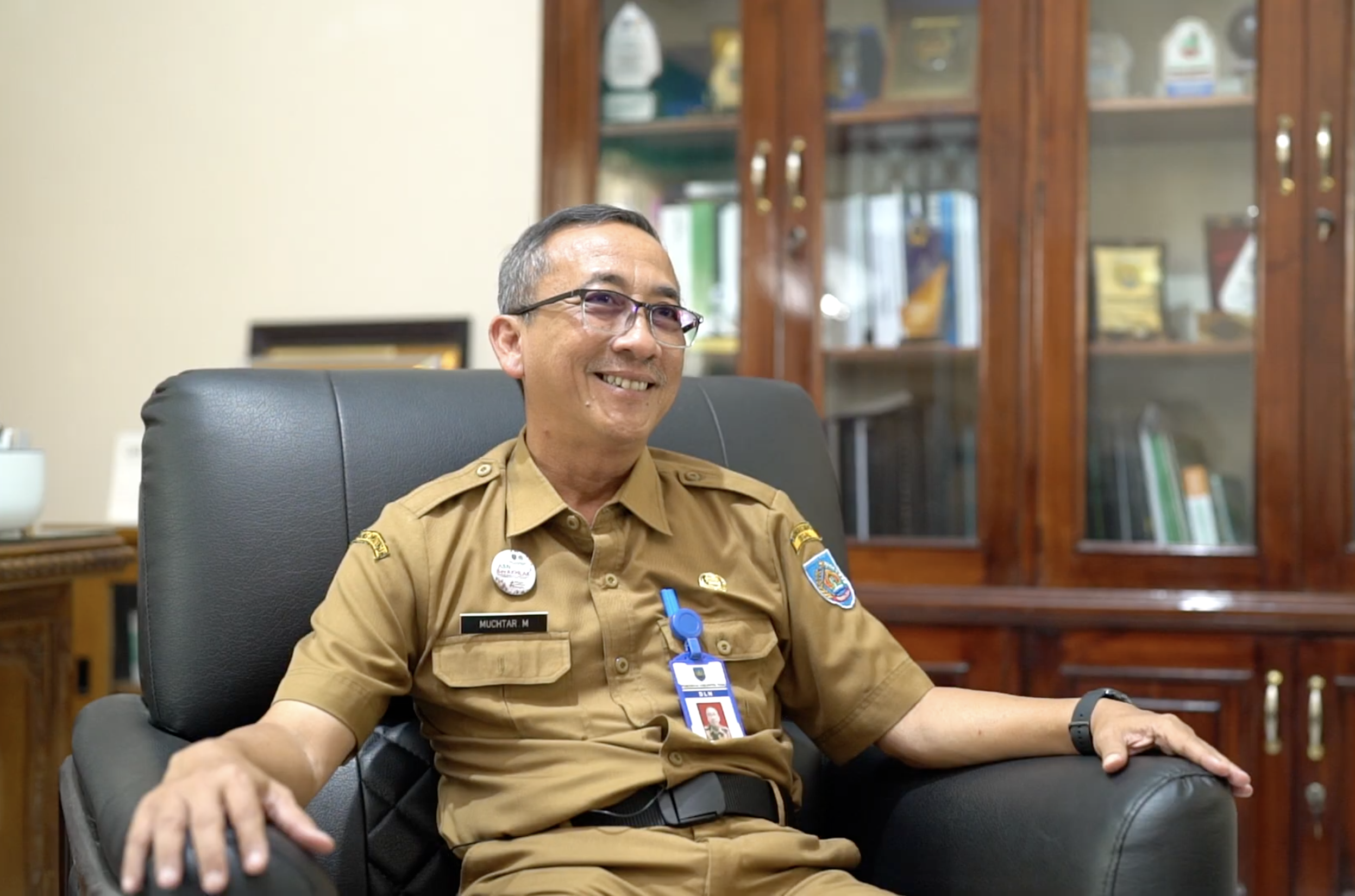
Efforts to remediate lead-contaminated land in Tegal Regency, particularly in Pesarean Village, Adiwerna District, have steadily progressed. Since the first remediation initiative by the Ministry of Environment and Forestry (KLHK) in 2018, the entire 9,439 m² lead-contaminated dumpsite in Pesarean has been restored by 2023. The remediation process cost approximately IDR 20.5 billion, funded by Indonesia’s State Budget (APBN) through KLHK.
Based on the Tegal Regent Regulation Number 71 of 2023 regarding the Action Plan for Reducing Lead Poisoning in Children in Tegal Regency 2023–2027, the Government of Tegal Regency is committed to completing the remediation of contaminated areas outside the dumpsite, including streets, alleys, and residential yards, totaling 5,000 m². This effort began in 2024 with a commitment of IDR 600 million from the Regional Budget (APBD).
This land remediation progress provides a breath of fresh air for an area plagued by severe lead pollution for over four decades. “None of this would have been possible without collaboration and commitment from various stakeholders,” said Muchtar Mawardi, SKM, M.Kes., Head of the Environmental Agency (DLH) of Tegal Regency and one of the driving forces behind this achievement.
Viewing Lead Pollution Through the Public Health Lens
With an educational background in environmental health, Mawardi began his career at the Health Agency of Tegal Regency in 1989. At that time, household-scale lead battery recycling and aluminum smelting in Pesarean were booming. While these activities boosted the local economy, they also generated significant hazardous waste (B3). Since 2009, these metal smelting operations have gradually been relocated to the nearby Small-scale Industry Zone (PIK) in Kebasen Village of Talang District. Nevertheless, the hazardous waste contamination still poses serious environmental and health challenges to this day.
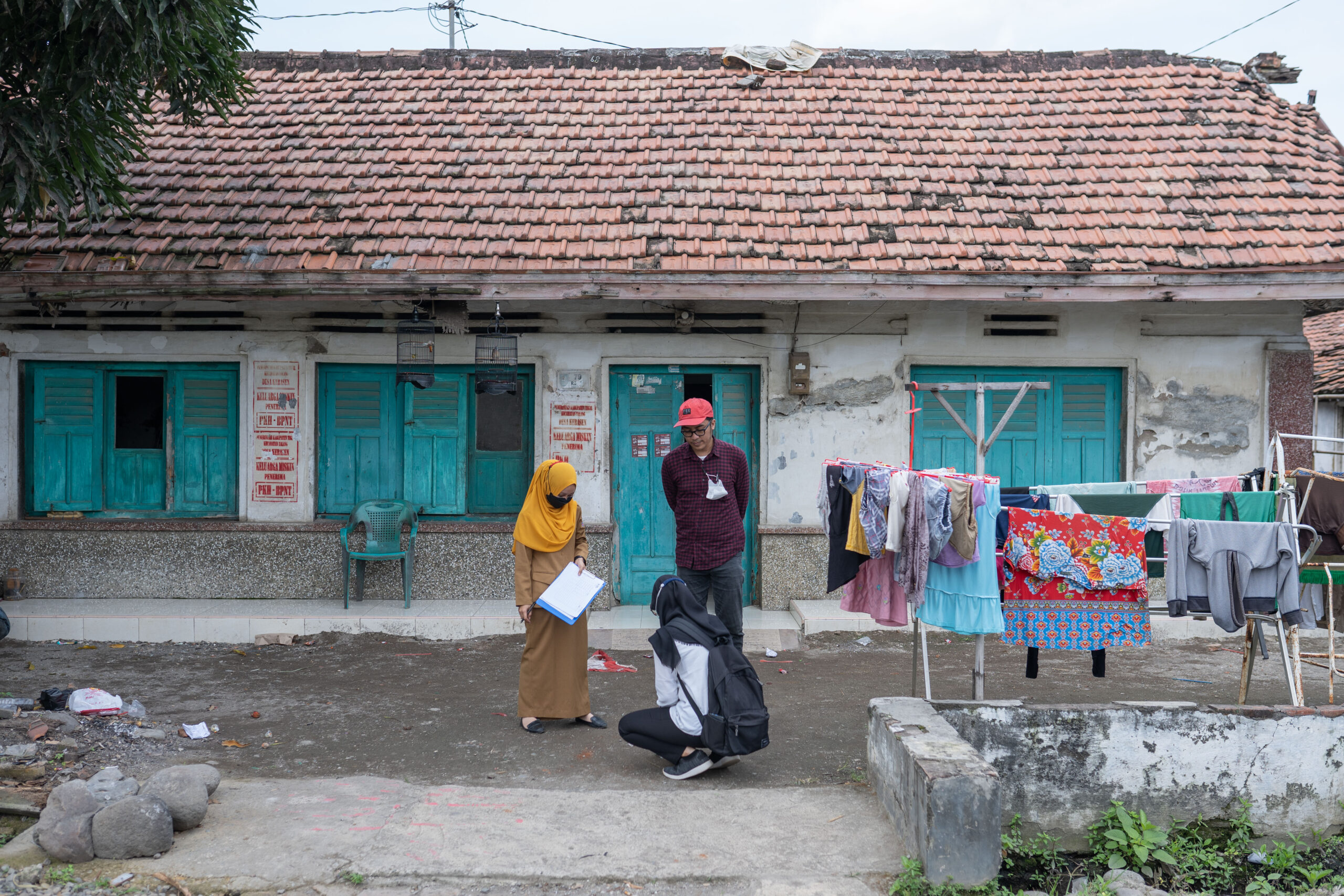
In 2005, Mawardi was appointed Head of the Kupu Community Health Center, located near Pesarean Village. This role allowed him to witness firsthand how lead pollution not only damaged the environment but also adversely affected the health of the community.
“Lead pollution causes numerous health problems. A 2023 study by the University of Indonesia and Pure Earth Indonesia found that 98.7% of children in Pesarean had blood lead levels (BLL) exceeding the threshold of 3.5 µg/dL, with 12.6% requiring urgent treatment. High BLLs in children increase the risk of developmental delays by up to four times. This is not just an environmental issue—it’s a public health crisis,” he emphasized.
Mawardi’s experience at the Health Agency shaped his view that environmental problems must be addressed holistically, focusing on both ecological and public health impacts. This perspective motivated him to apply for the position of Head of the Environmental Agency of Tegal Regency in 2020. “The role will give me the opportunity to make a meaningful difference in managing environmental issues more effectively.”
Three Pillars of Commitment
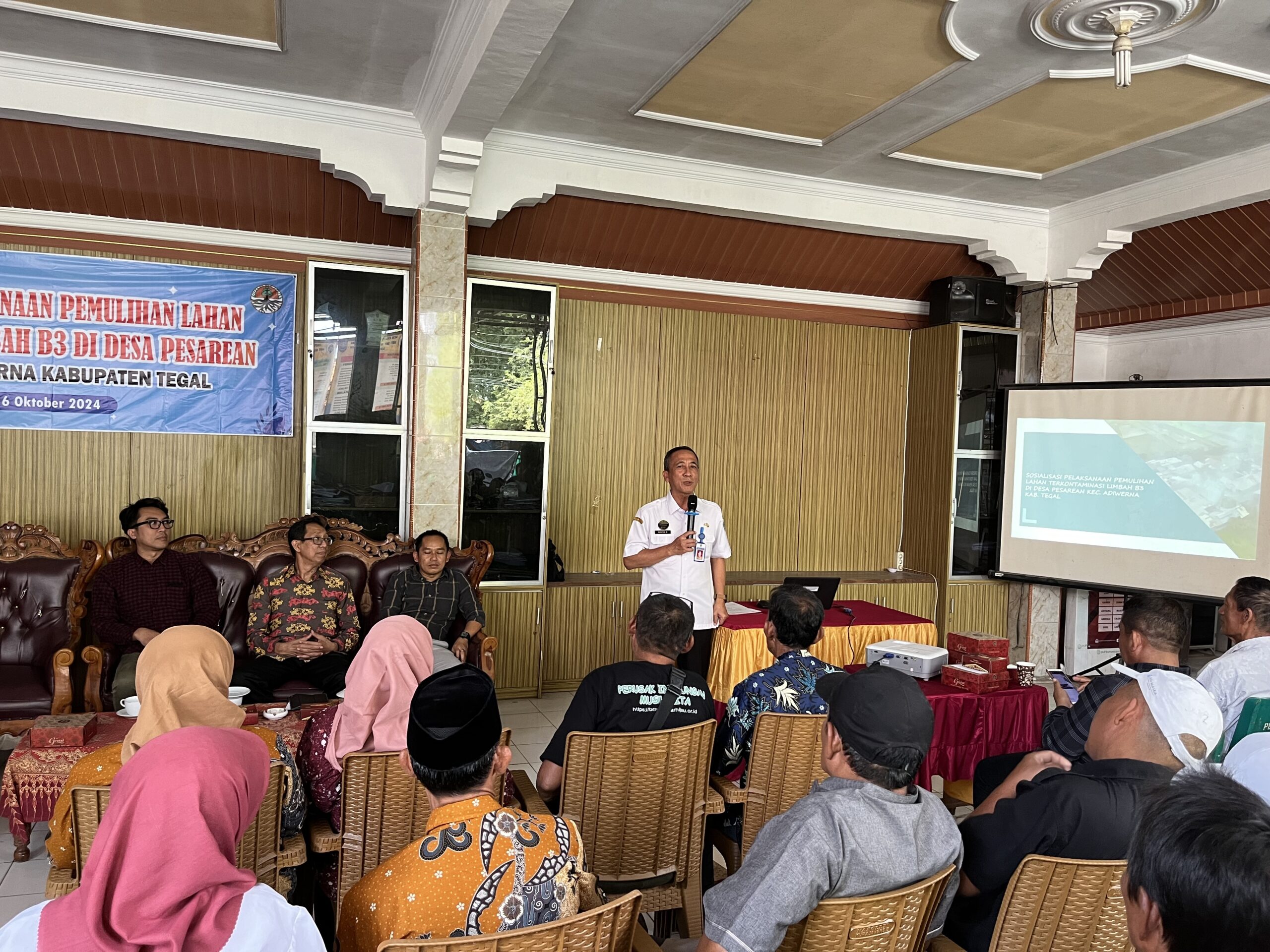
With over 27 years of experience at the Health Agency and additional roles as Secretary of the Regional Development Planning Agency (Bappeda) of Tegal Regency (2017–2019) and Head of the Economic and Development Division of Tegal Regency (2019–2020), which provided him with technical expertise in planning and budgeting, Mawardi was entrusted with the role of Head of the Environmental Agency (DLH) of Tegal Regency in 2020.
Armed with this diverse experience, Mawardi identified three critical commitments necessary to accelerate the control and management of hazardous waste (B3) pollution in Tegal Regency. The first is the stakeholder commitment. “This problem cannot be solved by the Environmental Agency alone. We need support from stakeholders at the local, provincial, and national levels,” Mawardi explained. The second is the budget commitment, which Mawardi emphasized as crucial and only possible with strong stakeholder support. The third is the business commitment. “Stakeholder commitment and funding cannot work without the cooperation from businesses operating in contaminated areas,” he added.
A System Approach
To unify these three pillars of commitment, Mawardi and his team implemented what he calls a System Approach. Through this approach, the Environmental Agency (DLH) seeks to foster collaboration and engagement among various stakeholders, including local and provincial governments, ministries, communities, and other parties such as non-governmental organizations (NGOs).
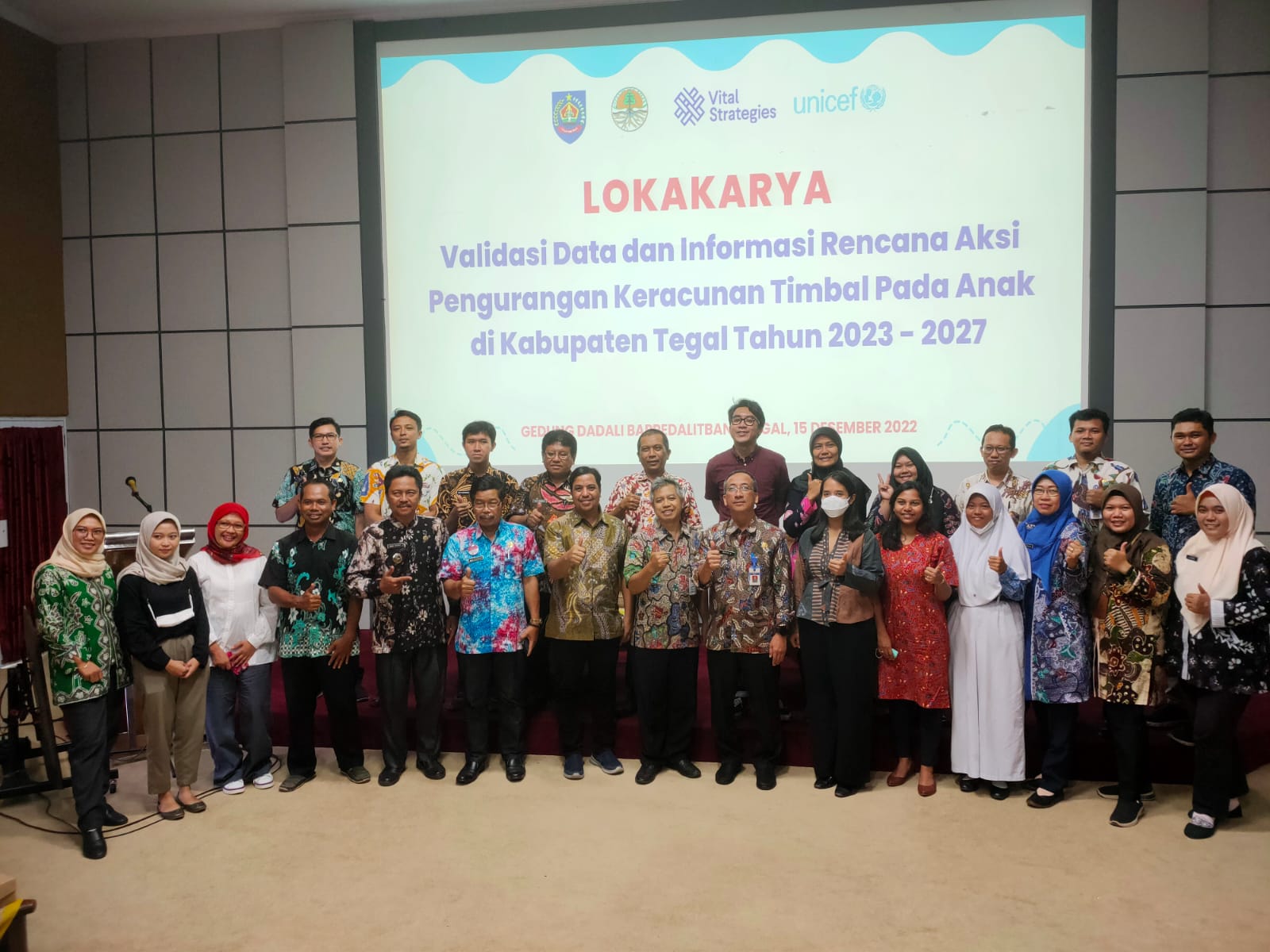
One key strategy was forming the Working Group for Remediation of Hazardous Waste Contaminated Land in 2021. Chaired by the Regent of Tegal, the Working Group includes technical local agencies the Health Agency, the Industry and Manpower Agency, the Education and Culture Agency, and the Youth, Sports, and Tourism Agency, Bappeda, as well as those at the provincial and national level namely the Environmental Agency of Central Java, as well as at the national level which is the Ministry of Environment and Forestry. “This task force ensures that addressing lead pollution is a shared responsibility.”
To provide a strong legal foundation, the Working Group facilitated the issuance of Tegal Regent Regulation (Perbup) Number 71 of 2023. This regulation contains the Action Plan for Reducing Lead Poisoning in Children in Tegal Regency for 2023-2027. “This action plan serves as a foundation, outlining clear steps for each agency and stakeholder involved.”
In the year since implementing the Action Plan, progress has been significant. “In terms of budget, we used Rp600 million of the regional budget for the remediation this year, with plans to increase this to over IDR 1 billion in 2025.” Coordination with provincial and national stakeholders has also accelerated efforts, including technical assistance such as mentoring, research, laboratory testing, and delineation. “We also received tremendous support from various NGOs such as Pure Earth, UNICEF, Vital Strategies, and others.”
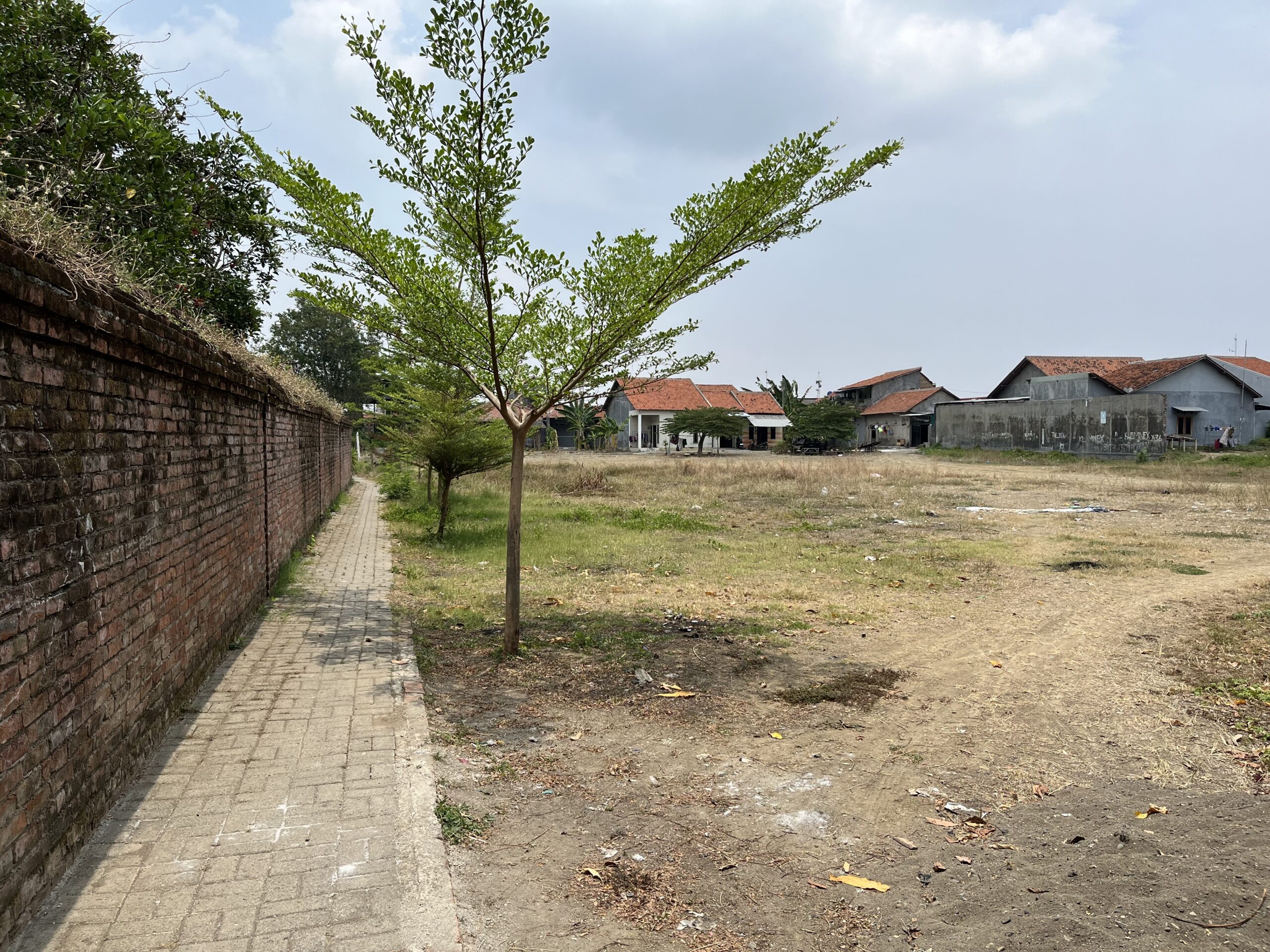
Mawardi also shared updates on the progress of the post-remediation plan. The government of Tegal Regency has proposed transforming Pesarean Village, specifically the Amangkurat I grave site near the former dumpsite, into a religious tourism destination. “The Youth, Sports, and Tourism Agency has already prepared a program for this transformation. Once the remediation is complete, the lead-contaminated land will be converted into a tourist destination. We have finalized a detailed engineering design (DED) and are currently awaiting approval from Keraton Surakarta (the Surakarta Sunanate), the landowner of the site. Together with Bappeda, we have engaged with them and received positive indications of support.”
Optimism Amid Challenges
As Mawardi approaches retirement, he reflects on his tenure with satisfaction. “I would have been deeply disappointed if we had done nothing to address lead pollution. But seeing the progress we’ve made gives me peace of mind.”
With systems in place, action plans established, budgets allocated, and collaboration strengthened, Mawardi remains optimistic. “The foundation is set; the next steps involve building on and enhancing these efforts,” he said confidently.
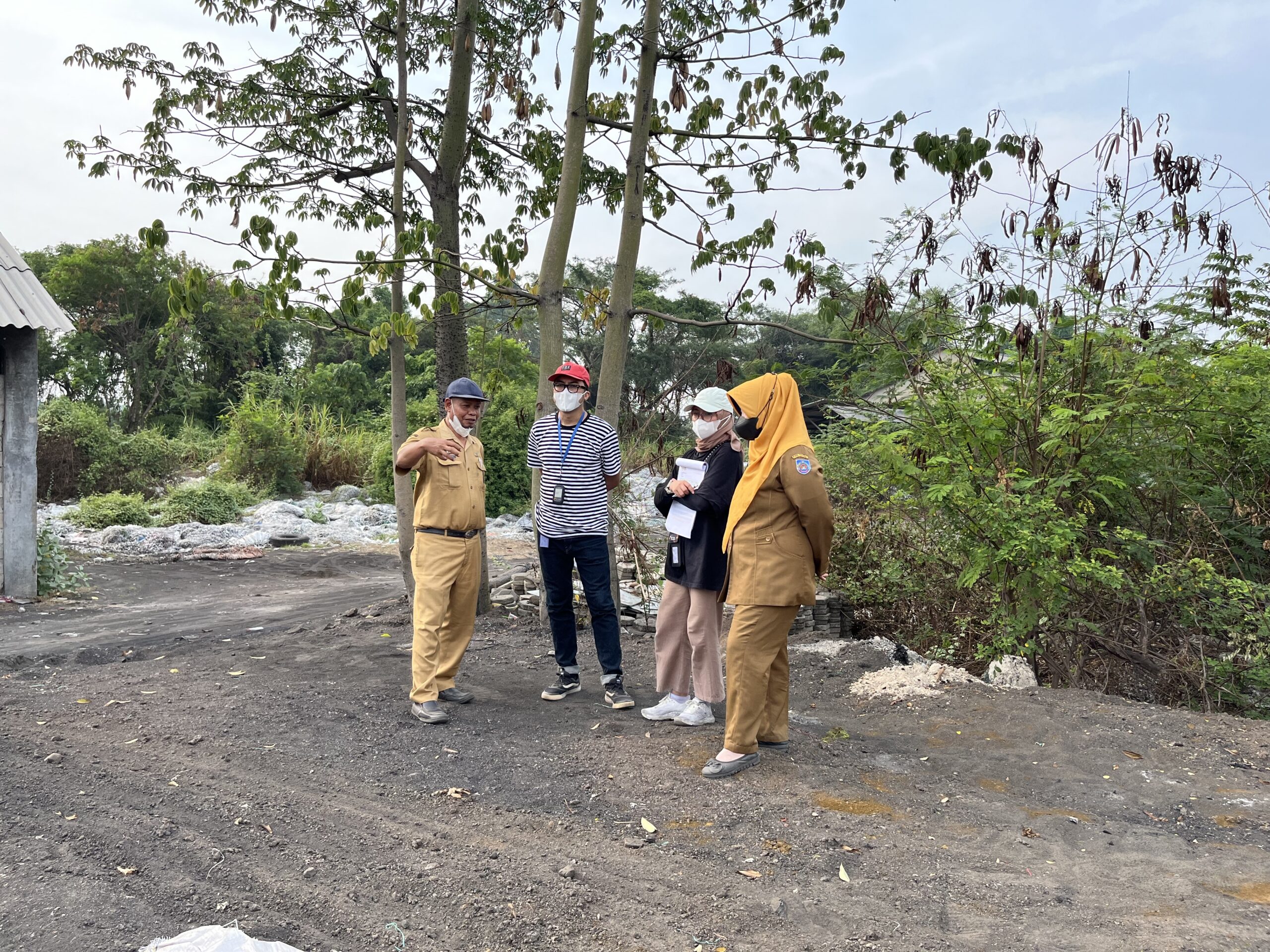
Challenges remain, particularly in gaining community support. “Public education alone isn’t enough. People need to feel involved in the solutions.” The Environmental Agency of Tegal Regency has integrated community participation into its initiatives, ensuring that people understand the personal and collective benefits of a lead-free environment.
Mawardi hopes that his successors will innovate and continue his legacy, ensuring that Tegal Regency achieves a lead-free future.
Read also: Breaking the Cycle of Extreme Lead Poisoning in Pesarean, Indonesia
Yayasan Pure Earth Indonesia expresses our deepest gratitude to Bapak Muchtar Mawardi for his leadership and dedication to tackling lead pollution in Tegal Regency. His legacy paves the way for a brighter, lead-free future in Tegal.
The town of Slawi, famed for tahu aci
Blengong satay, a Tegal delight
Thank you, Bapak Muchtar Mawardi
For leading Tegal to a future free of lead’s blight






